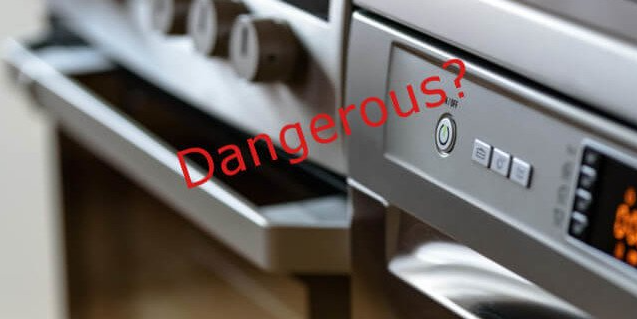


House Fire Insurance Claim Denied – Dealing with the impact of a house fire is an ordeal no homeowner wants to face. The aftermath involves rebuilding your home and navigating the complex world of fire insurance claims. Alarmingly, insurers in the UK deny about 23% of all home insurance claims, with reasons ranging from insufficient coverage to suspicions of fraud.
This article looks into the common pitfalls and reasons behind these denials and offers actionable advice to ensure you can face and overturn a denied fire claim. Whether you are reviewing your insurance policy or facing a frustrating denial, understanding the ins and outs of the claim process is essential for every homeowner and policyholder.
Fast Facts: House Fire Insurance Claim Denied
Experiencing a house fire is one of the most traumatic occurrences a homeowner can encounter. It leaves behind physical damage, emotional stress, and financial strain. Making an insurance claim in the aftermath should streamline the recovery process. However, when an insurance company denies your fire insurance claim, it can exacerbate an already challenging situation.
House fire insurance claims can be the most expensive; according to the ABI, a staggering £1.3 billion was paid out to policyholders in 2018 for fire damage insurance claims. The damage caused by fires, large and small, can be catastrophic. The fire causes loss and damage from extreme heat, smoke, and flames. The efforts to control and diminish the fire also cause further damage to property when rescue teams use extensive amounts of water and fire retardants to quench the fire.
Fire claims can be particularly tricky to navigate and manage, and if your claim is in excess of £35,000, it would be worth speaking to a professional claims management company like Oakleafe Claims. Having someone on your side who knows what to expect, what you should look out for, common pitfalls, and possible exclusions is invaluable for homeowners who want to ensure they receive their full insurance entitlement.
What Oakleafe Clients Say:


Receiving a ‘house fire insurance claim denied’ notice is not unusual. Insurance companies scrutinise claims very closely and may deny them for various reasons. Understanding these reasons is the first step towards ensuring that your claims are accepted.
One common reason policyholders receive a ‘house fire insurance claim denied’ notice is the discrepancy between the coverage held and the claim filed, often due to underinsurance.
Policyholders must:
Allegations of fraud or arson are serious accusations that insurance companies may levy against policyholders to deny claims. If your claim is under investigation:
Read about dealing with smoke damage from a neighbour’s fire.
It is easy to lose track of what you must do after such a devastating event. But one thing your insurer will expect you to take responsibility for, however, the fire began, is mitigating the damage as much as possible. This means securing your property as much as possible after the fire to prevent further damage from weather or intruders.
If you fail to secure and protect your home as much as possible after a fire, you will be held responsible for any further damage that happens as a result. Be aware of issues such as mould damage and ‘matching’.
Mould
Mould can quickly and easily develop in your home following fire rescue efforts due to the copious amounts of water used to douse the flames. Unless clean-up operations get underway promptly, further mould damage to your property can rapidly develop. Your insurer may try to state that mould damage is excluded from your policy, especially if a mould exclusion clause is present. However, if your insurer delays or fails to assist with clean-up measures promptly, they are responsible for mitigating damage despite the exclusion.
Matching
‘Matching’ can also often cause disputes with fire insurance claims. This is particularly true in cases of partial loss. If a fire has damaged parts of your home, your insurer may attempt to cover the cost of replacing only the damaged sections of your property. Remember that your insurer is responsible for covering your property to its pre-loss condition, which includes consistency and matching. Therefore, your insurer is liable to pay the fee to replace all property to a uniform and consistent standard.
Being proactive can significantly reduce the risk of claim denial.
No matter how large or small the fire in your property, contact professionals such as Oakleafe Claims. Without the proper knowledge and expertise, you can easily underestimate the damage and suffer significant financial loss. This is really important if you want to receive your full settlement for the required fire damage restoration from your insurer.
Take responsibility for obtaining the correct professional help for your fire insurance claim. Licensed, experienced professionals, such as structural engineers and chartered surveyors, should be brought in to evaluate the extent of the fire damage. They can assess damage that may not be obvious to someone without the relevant knowledge, such as the structural integrity of your property following a fire. Certified hygienists can also be extremely helpful in identifying issues with air quality, mould, asbestos and how to get rid of the smell of smoke after a fire.
Loss assessors such as Oakleafe Claims can offer impartial expert advice on the next steps and what to expect. As independent experts in the field of insurance, we can also manage your claim on your behalf to relieve the heavy stress and burden of managing your fire insurance claim.

A ‘house fire insurance claim denied’ notice is not the end. There are several steps you can take to contest the decision.
Upon receiving a denial notice:
Should informal negotiations falter, exploring formal legal channels may be necessary.
In navigating these waters, consulting with a legal professional experienced in insurance law can provide invaluable guidance.
Navigating a house fire insurance claim denied notice can undoubtedly feel daunting. However, armed with the appropriate knowledge and a proactive approach, you can significantly better your chances of a favourable resolution. Remain diligent in managing your insurance coverage, meticulous in your documentation, and persistent in your pursuit of a fair review. Remember, insurance is a safeguard for your most precious asset—your home; understanding and managing it effectively is not just prudent but essential.
Understanding the intricacies of fire insurance claims is crucial for homeowners and policyholders who have experienced fire or smoke damage. Being informed and prepared can make all the difference in successfully navigating these challenging situations.
Oakleafe Claims have represented policyholders and managed their insurance claims since before the First World War. We have vast expertise and experience in both domestic and commercial fire insurance claims with thousands of satisfied policyholders who have received their deserved insurance settlement.
What Oakleafe Clients Say:

Your insurance should cover all damage to your property relating to the accidental fire. This includes:
Smoke damage is far-reaching and difficult to assess due to its inconspicuous nature. Even the smallest of fires can leave lasting and significant smoke damage. The longer smoke damage goes untreated, the worse the damage can become.
It is essential to have smoke damage assessed by a professional. If household members have compromised respiratory health, such as asthma or emphysema, smoke damage will exacerbate their health problems and cause acute illness. Your insurance policy should cover smoke damage, including the assessment and replacement of smoke-damaged property.
Extreme heat will damage properties that the flames may not directly damage. The main structures of the property, such as the roof, structural steel, rendering, siding, and concrete, can all become destabilised from extreme heat. Windows can warp, discolour, and lose clarity, and internal systems such as plumbing, heating, and electrics can also be damaged by excessive heat. Your insurance should cover the cost associated with all these fire-related damages.
Your insurance policy ought to also cover damage caused by fire rescue efforts. Fire rescue teams will use the best tools and equipment to quench the fire. This is likely to include fire retardants and large quantities of water, both of which will cause water damage to your property. The water will seep into systems, walls, and timber, which can quickly develop mould.
All damage related to the fire, including fire rescue efforts, forms part of your fire damage insurance claim.
Knowing what may be excluded from fire insurance claims is just as important to avoid disputes and rejected claims.
The first important piece of information you need is that unoccupied properties will only be covered if you have specific unoccupied insurance coverage in place. Unoccupied properties are more likely to be damaged by arson or accidental fires.
If you are away from your home for more than 30 days a year, you must let your insurer know so that they can factor this risk into your insurance premium.
If you or any household member is a smoker, this must be stated on your insurance policy.
Ensure that your insurance documents have the correct information about smokers; these details can often be pre-filled with a default ‘no’ and remain unchecked unless you thoroughly assess all your policy’s small print and conditions. If you fail to provide the correct information, and a fire at your property is concluded to have begun by a cigarette, your claim will be void.
Something else to remain vigilant about are your fire alarms. Ensure your insurance cover includes the correct information about the number and type of fire alarms present within your property. Again, this information may be pre-filled with a default option, and it is up to you to check the details are correct. Likewise, you are responsible for maintaining the working order of your fire alarms. If you fail to match your fire alarm functionality regularly, your insurance cover will be considered void since you did not keep your side of the insurance agreement; insurance policies include this as a standard condition of cover.
What Oakleafe Clients Say:



Please complete the form and one of our insurance claim professionals will call you back ASAP